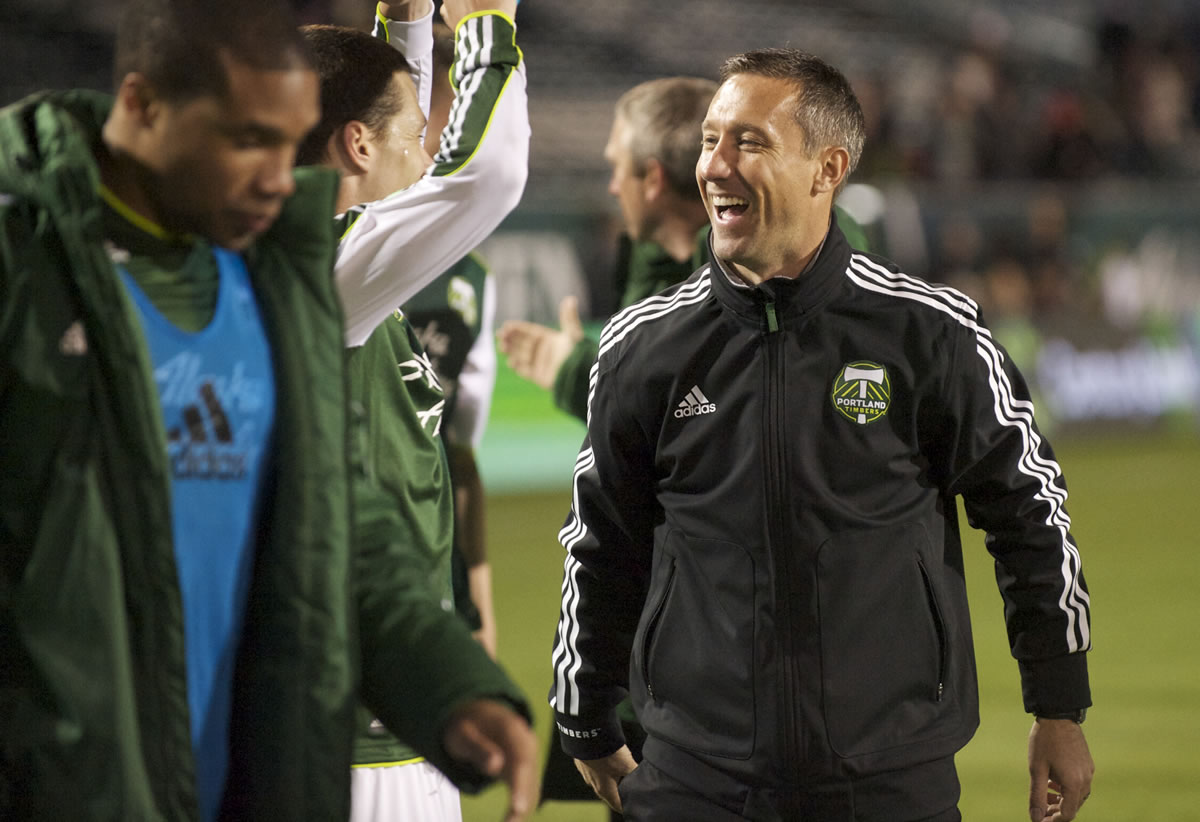The 17th game of the Portland Timbers 2012 season was a 3-0 loss at Real Salt Lake in which the Timbers barely put up a fight.
Those Timbers had five wins, eight losses and four draws at the midpoint of the season. There was little reason for optimism.
A season later, the Timbers have lost only one of their first 16 matches.
That rather dismal performance at RSL last July proved to be a notable turning point for the young Major League Soccer franchise. The loss at RSL was the final game coached by John Spencer, who was done in by his inability to produce results away from Jeld-Wen Field.
The 2013 Timbers reach the midpoint of their MLS schedule on Sunday when the Colorado Rapids visit Portland. It’s easy to see the franchise is in a much better place. Just look at the standings, where the Timbers share the third best record in the league (6-1-9), and scored more goals in their first 16 games than any other MLS squad.
Caleb Porter, the man owner Merritt Paulson hired to get results, is getting deserved credit for the turnaround. His ability and willingness to adjust tactically is part of the story. So, too, is the work of general manager Gavin Wilkinson as the Timbers reshaped their roster into a much deeper, more experienced squad.
Porter has talked often about playing to win every game, on trying to make opponents react to what the Timbers are doing instead of the other way around. But even when the Timbers have found themselves on the wrong side of that equation, Portland has battled. In losing only once so far this season, the Timbers have come from behind to tie or win five times.
After last weekend’s stirring win over league-leading FC Dallas, Porter explained that toughness was the primary ingredient he looked for when he began rebuilding the Timbers roster.
“If you want to win games consistently in this league you’ve got to have guys that are fighters, and are tough mentally and physically,” Porter said. “If you don’t have that kind of makeup and mentality in your team then you’re going to be inconsistent.”
Will Johnson was in the middle of the action last July when Real Salt Lake delivered the knockout blow to Spencer’s time as Timbers boss. Johnson was on the winning side that night.
As Porter’s team captain, Johnson has helped create a winning culture in Portland. His tenacity and versatility is one example of how the Timbers have changed. Johnson is tied with Darlington Nagbe for the team lead in goals with five, despite spending a lot of time in a defensive midfield position.
Seven players have scored goals in league play, and that doesn’t include Frederic Piquionne, the veteran striker who scored four times in a U.S. Open Cup match, and whose ability to possess the ball has allowed midfielders to engage in the attack.
But it is on defense that depth and versatility have made the biggest impact. Despite a series of changes in central defense — brought on by injuries to Mikael Silvestre and David Horst and the departure of Hanyer Mosquera — Portland has become tough to score against. Entering Sunday’s match, no MLS visitor to Jeld-Wen Field has scored on the Timbers since March 9, when Montreal scored twice.
The Timbers have not lost since — home or away — a string of 14 league games without a loss. That nine of those were road games — Portland’s string of 10 consecutive away matches without a loss dating to last October’s win at Vancouver is the second longest such stretch in league history — is striking evidence of just how different the first half of the 2013 season has been for the Timbers and their supporters.





